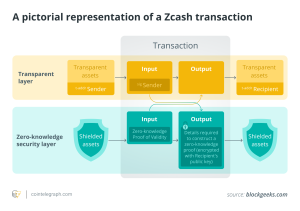Binance Implements a USDT Price Cap in Order to Comply with Nigerian Regulations
2 min read
In order to comply with Nigerian local authorities, Binance has placed a cap on the price at which Tether USDT tokens may be sold on its peer-to-peer (P2P) network. Currently, traders on Binance are unable to sell USDT for more than a ceiling of 1,802 naira per USDT.
The cryptocurrency exchange assured its Nigerian users that it would collaborate closely with legislators, local authorities, and regulators to make sure that users who violate the price cap are taken seriously. Users can transact directly with other users to buy and sell cryptocurrency for fiat money using Binance P2P.
The price cap prevented traders from selling above it, forcing them to switch to other exchanges where they could transact without limitations.
The Central Bank of Nigeria (CBN) and the Office of the National Security Adviser in Nigeria launched a cooperative effort to address the problems harming the nation’s economic stability and stop FX speculation.
The campaign emphasizes how speculators’ actions, both locally and abroad and via various channels, have contributed significantly to the depreciation of the naira, escalating inflation and creating economic instability in Nigeria.
The naira significantly declined against the US dollar on the foreign exchange rate market when the Nigerian government unified the forex windows in the middle of 2023. It doubled from roughly 700 naira/$1 to a record high of over 1,500 naira/$1.
The Nigerian Securities and Exchange Commission (SEC) advised domestic investors not to use Binance in July 2023. The organization said that the platform’s activities were unlawful and that it lacked a license to operate in the nation. It also served as a reminder to the general public of the high degree of risk and possible complete loss of investments:
Nigeria is now the largest peer-to-peer market globally, thanks to the Central Bank of Nigeria’s 2021 prohibition on institutions purchasing and selling cryptocurrencies. However, the prohibition on Nigerian banks supporting cryptocurrency transactions was repealed in December 2023 by a circular given to banks.
Many Nigerians who deal with foreign currencies find it difficult to use standard banking and Bureau de Change (BDC) channels for their operations. This is because P2P transfers are more appealing than cryptocurrency transactions. After all, the costs associated with transferring foreign exchange within the banking system are much greater.






